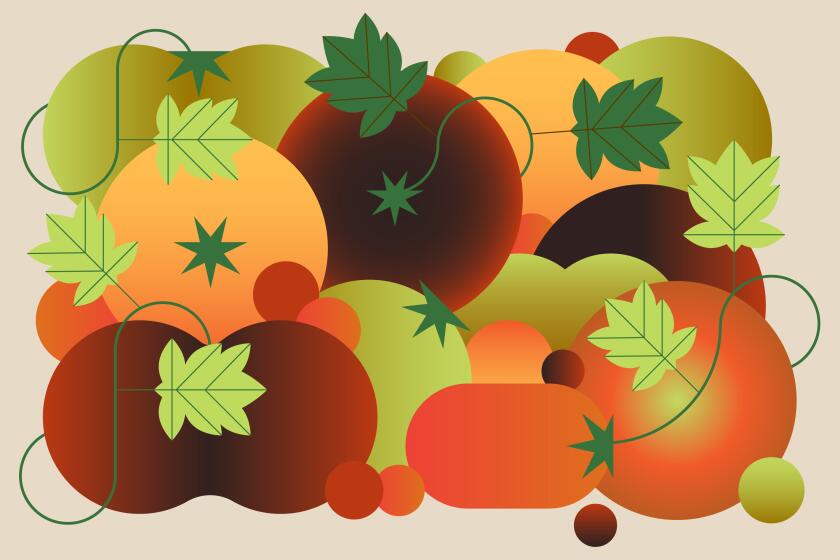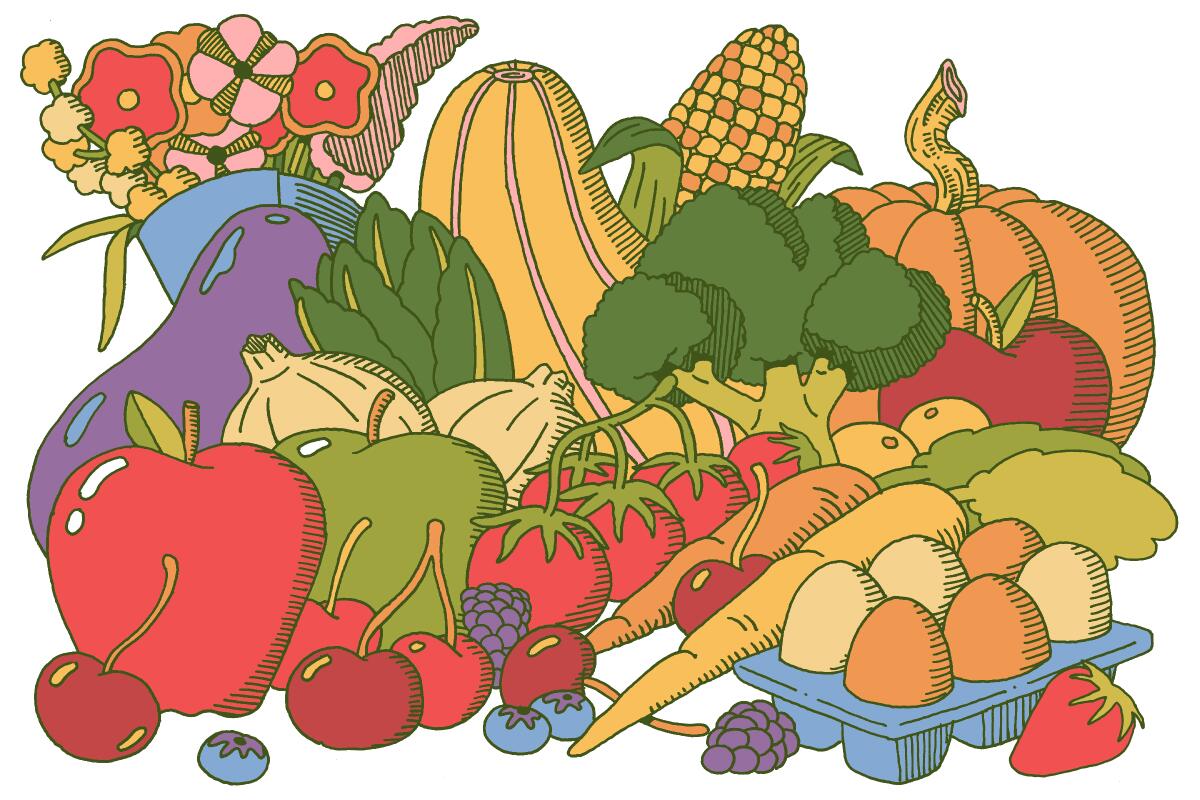
19 SoCal farms worth visiting for apple picking, organic veggies and fall magic
- Share via
Once upon a time, before condos and strip malls and acres of residential subdivisions, Southern California was full of little farms.
It was “the largest, most bountiful agricultural county in the U.S.,” said Rachel Surls, sustainable food systems advisor for UC Cooperative Extension in Los Angeles County and author of “From Cows to Concrete: The Rise and Fall of Farming in Los Angeles.” And then, after World War II, it became more lucrative to build houses than grow food.
“Really what changed was the value of land,” Surls said. After the war, the county’s population soared “and land was valued for other things than agriculture. Even the farmers who wanted to stay in business couldn’t because the taxes on land went up — sometimes as much as 300% in a year — and ancillary businesses they relied on, like packing houses, closed and went out of business.”
Should we pick our homegrown tomatoes when they’re green? Three experts weigh in with harvesting tips, plus plant-related activities for September 2023.
Then new municipal rules made farming illegal in many cities, she said. As the region became more urban, “people didn’t want cows and tractors in their neighborhoods. They didn’t want to live down the street from a poultry ranch or dairy and they didn’t want to drive their nice new car in their nice new subdivision behind a tractor going 10 miles per hour.”
All of that seems pretty quaint now; how many of us yearn to live near someone who grows fresh strawberries or raises chickens for eggs? Surls helps urban farmers as part of her job, and she says though there aren’t any formal statistics about the number of urban farms in our region, subjectively it feels like the tide is turning and more small farms are creeping into our urban area.
But it’s still a tough slog. Many urban farmers are growing on leased land that could be sold out from under them if the owner gets an offer too good to refuse, she said. And many use organic methods to farm, but can’t call themselves organic because they haven’t taken the time — up to three years — expense and bookkeeping required to get and keep a USDA organic certification.
And then there’s the competition from supermarkets and grocery stores where you can find almost any produce, no matter whether it’s in season here or not, at prices often lower than what farm stands can afford to charge.
Planning your weekend?
Stay up to date on the best things to do, see and eat in L.A.
Really, the big advantage that urban farms have is their freshness, a commodity that’s slowly reestablishing itself in American homes. You can see where your food was grown and — in some cases — even pick it yourself.
But many urban farms grow for restaurants, subscription boxes or even farmers markets in an attempt to regulate their income, so it’s not always easy to find a place where you can go and buy those freshly picked fruits and vegetables, or pick them yourself. That’s why we’ve compiled this list, to help you find your own farm experience.
We looked for places that are within L.A. or a two-hour drive away, selling produce primarily grown on their farms (although some larger farm stands may sell additional produce, eggs and other items produced elsewhere).
Finding your favorite nursery can be thrilling. Here are our picks for the best independently owned plant nurseries near Los Angeles.
Note that only a few of these stands operate daily. Smaller farms only sell once a week or every other week because they just don’t have the space or help to grow and harvest enough food for daily sales. Others have created a whole “farm experience” around their stands, offering tours, “u-pick” options, petting zoos and other activities to draw customers in. If we’ve missed one of your favorite stands, email me at [email protected].
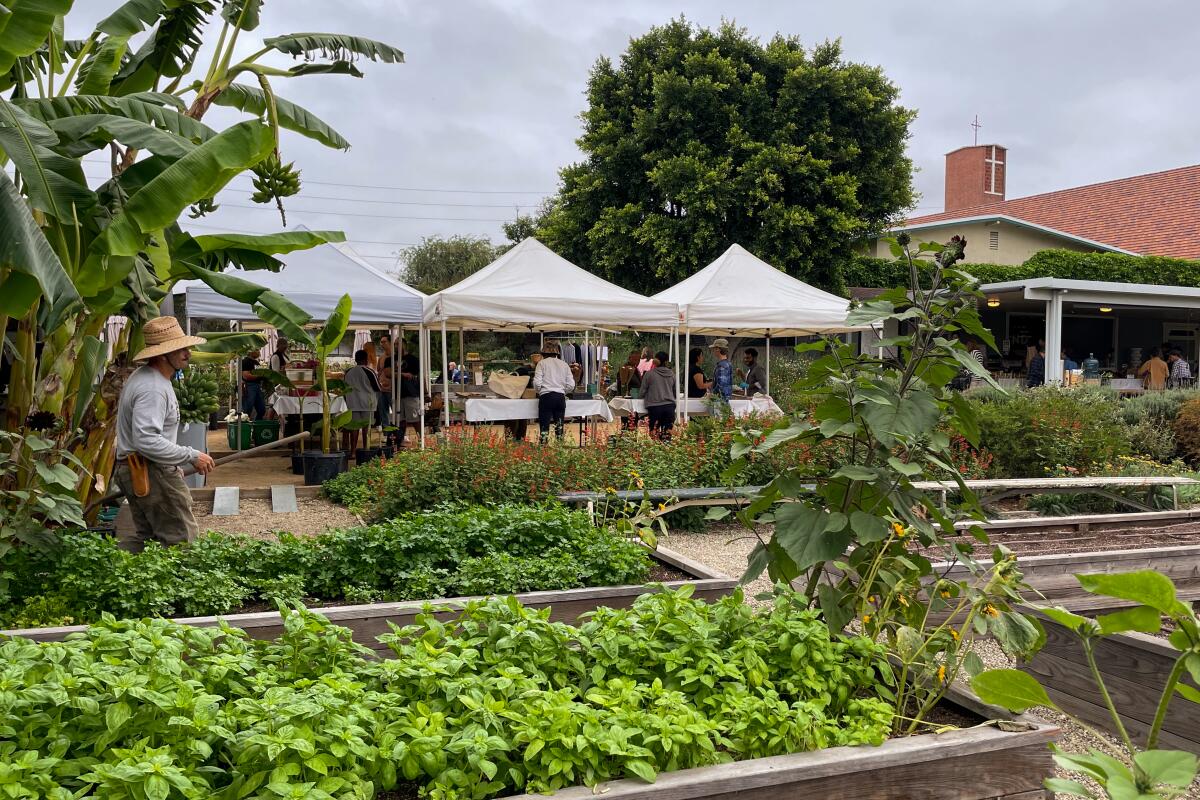
Alma Backyard Farms
Alma Backyard Farms is a small but determined operation with a half-acre lot in West Compton and two other smaller residential farms in San Pedro and East Los Angeles. It sells produce from its urban farms (and some items grown by other distributors like apples) every other Sunday from 8 a.m. to 1 p.m. at the West Compton farm. Keep in mind, the farm stand sometimes sells out by 10 a.m. Unexpected offerings are also in the mix. On this Saturday, ripe, tangy passionfruit (10 for $5) and banana tree pups ($15) grown on property were for sale. Sometimes staff will sell brunch; chilaquiles are a specialty.
The organization was created in 2013 to help formerly incarcerated people “reorient their lives as caretakers of community” by growing food, as well as helping at-risk children and youth and food insecure families. As such, the farm offers agricultural training, workshops for school children, food boxes for subscribers and the opportunity for volunteers to build new lives around farming and serving others.
There is free street parking for the farm, which is near St. Albert the Great Elementary School, along East Redondo Beach Boulevard near East 153rd Street.
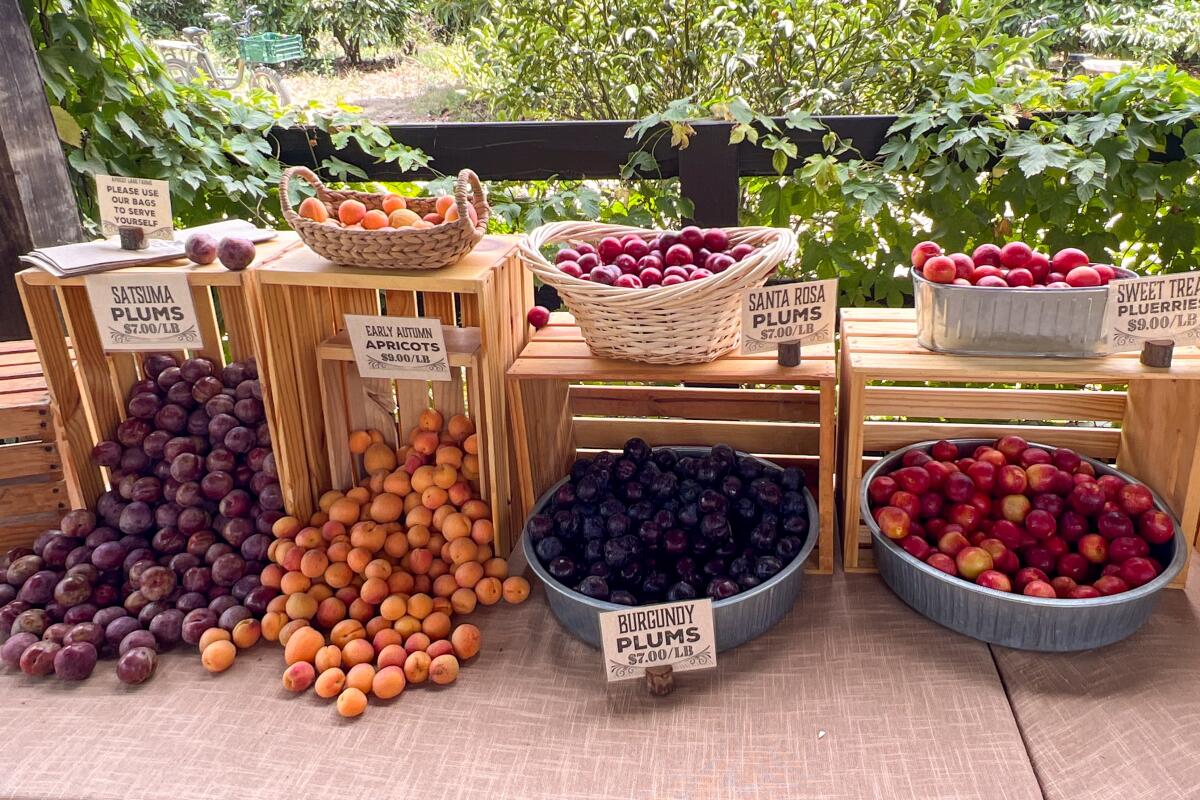
Apricot Lane Farms in Moorpark
Yes, indeed. It became famous following two engaging documentaries that tell the inspirational story of an urban couple with no farming experience who created the regenerative farm in Moorpark. The documentaries, “The Biggest Little Farm” (2018) and “The Biggest Little Farm: The Return” (2022), show the sometimes grueling process of running the farm. The owners are a husband-and-wife team: filmmaker John Chester and chef Molly Chester.
In addition to selling produce, they offer $50-a-person tours of the farm and occasional $500-a-plate farm dinners that quickly sell out. If you aren’t swift enough to book or well-heeled enough to pay for a tour, you can shop for their produce at four farmers markets or visit their seasonal farm stand for free on Saturdays from 10 a.m. to 3 p.m. They sell produce, meat and eggs (duck and chicken) at the stand, although during our visit the merchandise promoting their documentaries and lovely cookbook, “The Apricot Farms Cookbook,” took up most of the shelf space. There was, however, a long shelf for stone fruit like plums, apricots and rarely found pluerries (a cross of plums and cherries; $9 a pound), mixed potatoes at $3 a pound and farm-raised eggs for $15 a dozen (probably from the happiest poultry in North America.) You can also tour the adjacent demonstration garden for free, but don’t count on seeing much of the farm unless you pay for the tour, or stream the documentaries.
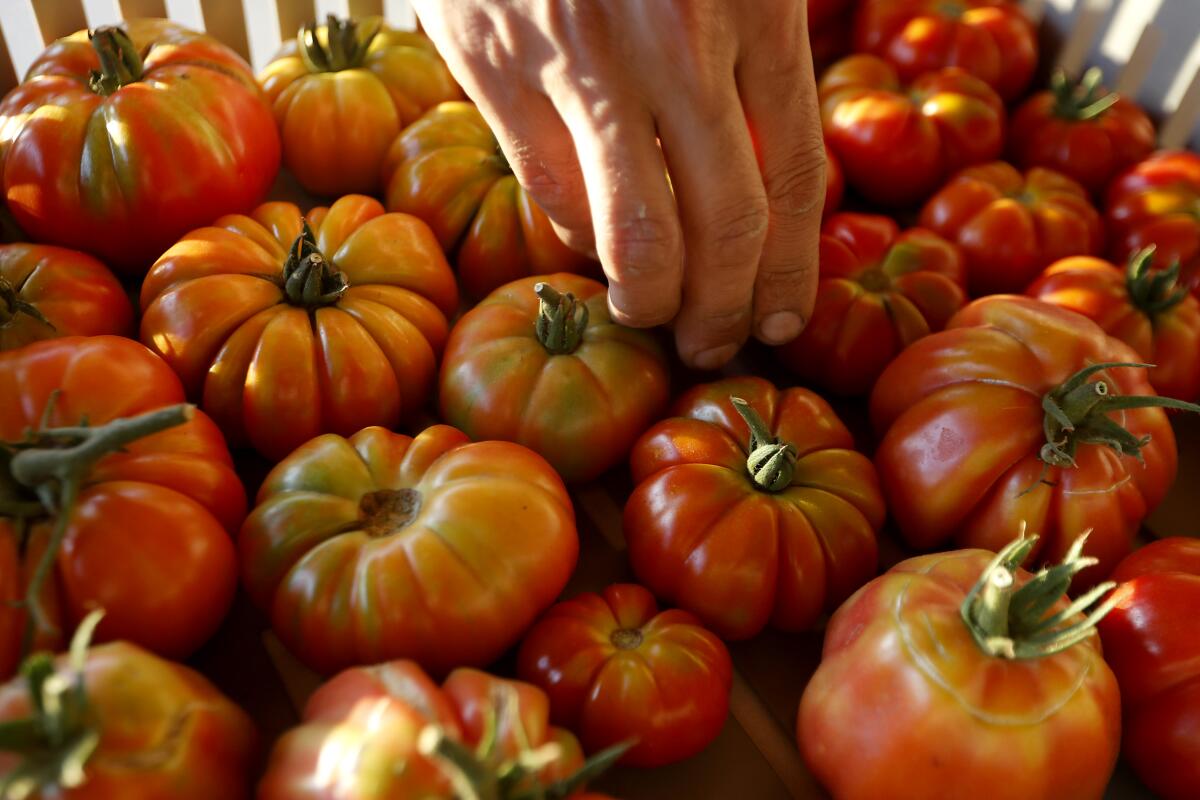
Avenue 33 Farm in Lincoln Heights
They don’t sell produce from their front yard — they’re trying to maintain some semblance of separation between their private and busy professional lives that include film editing (Greer), cooking (Tomassini) and farming, but they do sell boxes of food every Friday from 2 to 5 p.m. just down the street at the Los Angeles Leadership Academy Primary School (on Griffin Avenue between 26th and 28th avenues — don’t confuse this location with the secondary school nearby). You have to order the box online; they note what’s in the box each week on Instagram. In early September it was blueberries, chard, cilantro, long beans, tomatoes, bell peppers, peaches, passionfruit and a dozen eggs (that were provided by a partner).
Though this isn’t a farm you can visit, Avenue 33 made this list because of its unique pricing scale — $10 for EBT customers and between $20 to $40 for those who want to buy local but can’t afford to pay full price. The sliding scale balances out, Tomassino said, with people who can afford to pay full fare helping their less fortunate neighbors along.
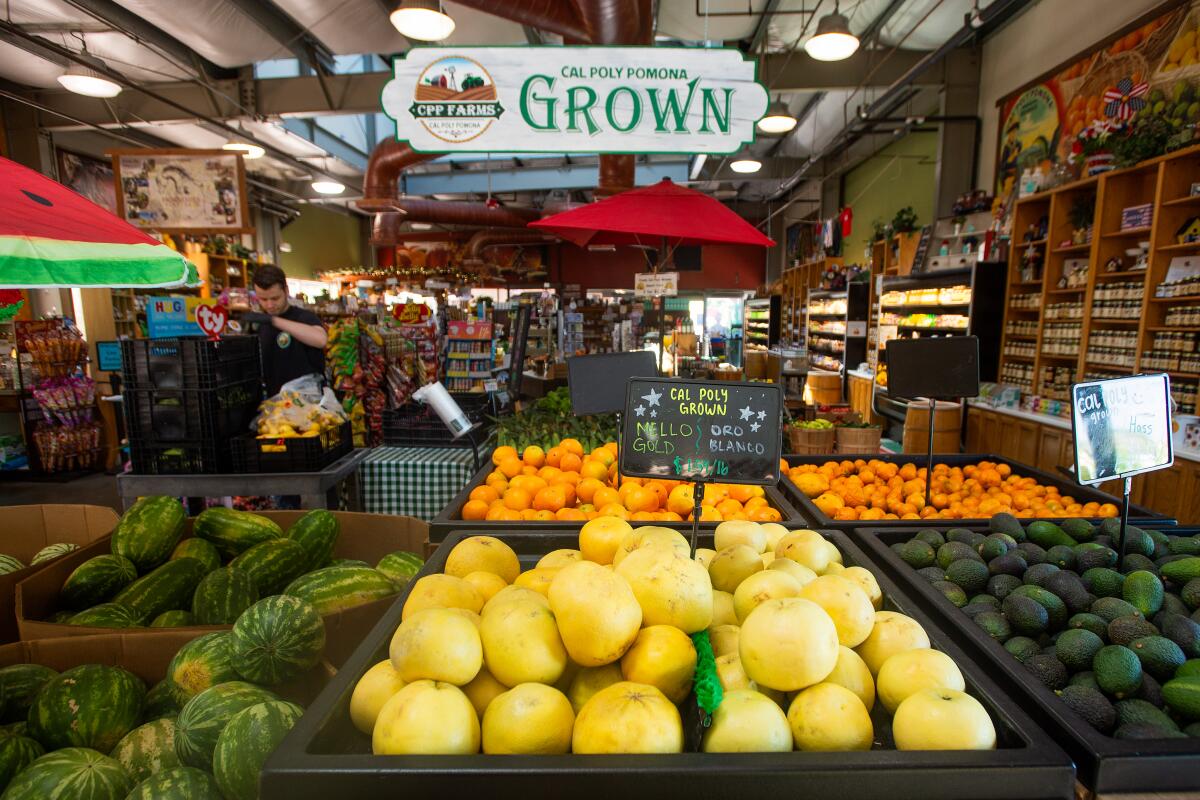
Cal Poly Pomona Farm Store at Kellogg Ranch
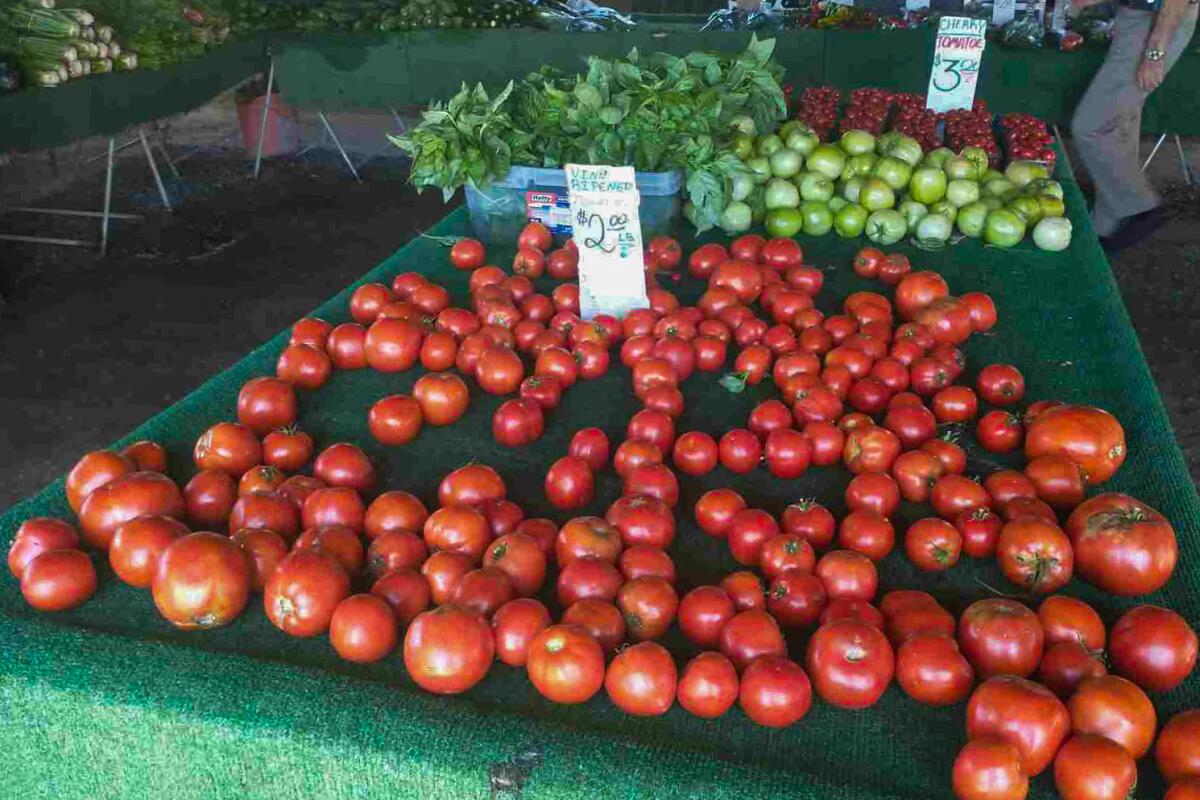
Corona Farms in Riverside
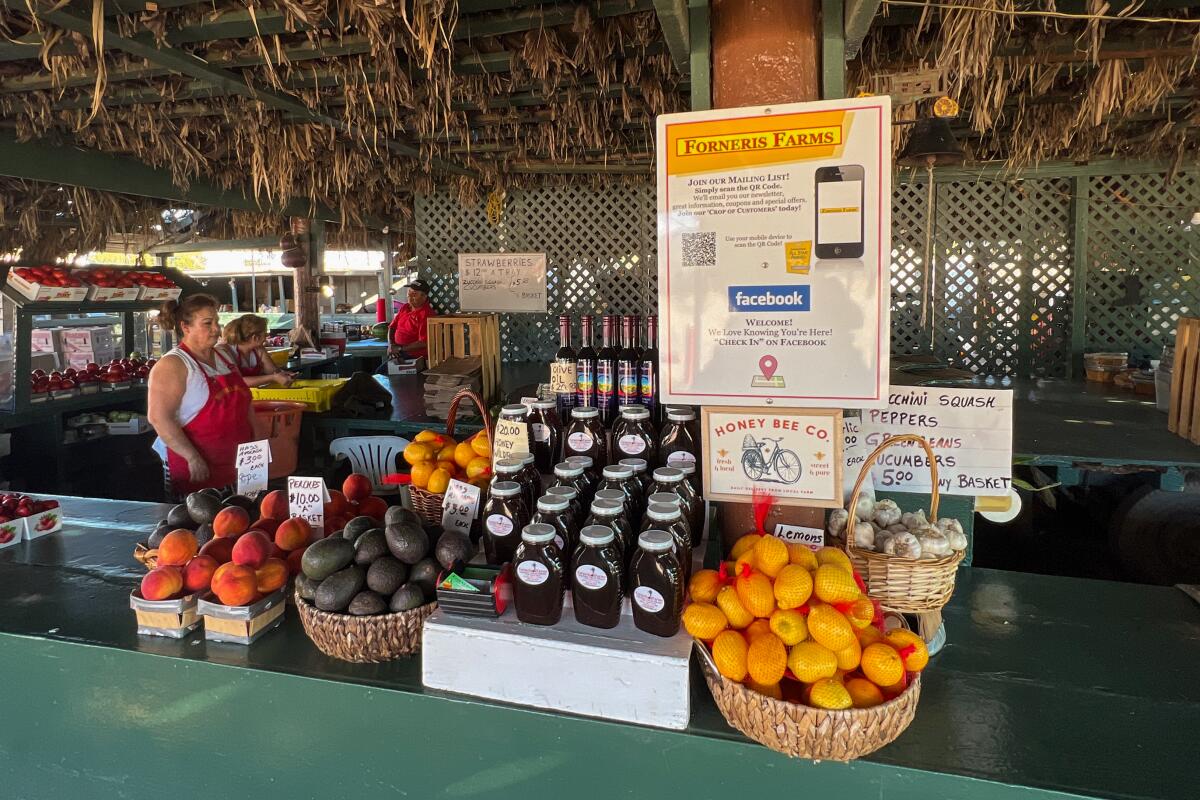
Forneris Farms in Mission Hills
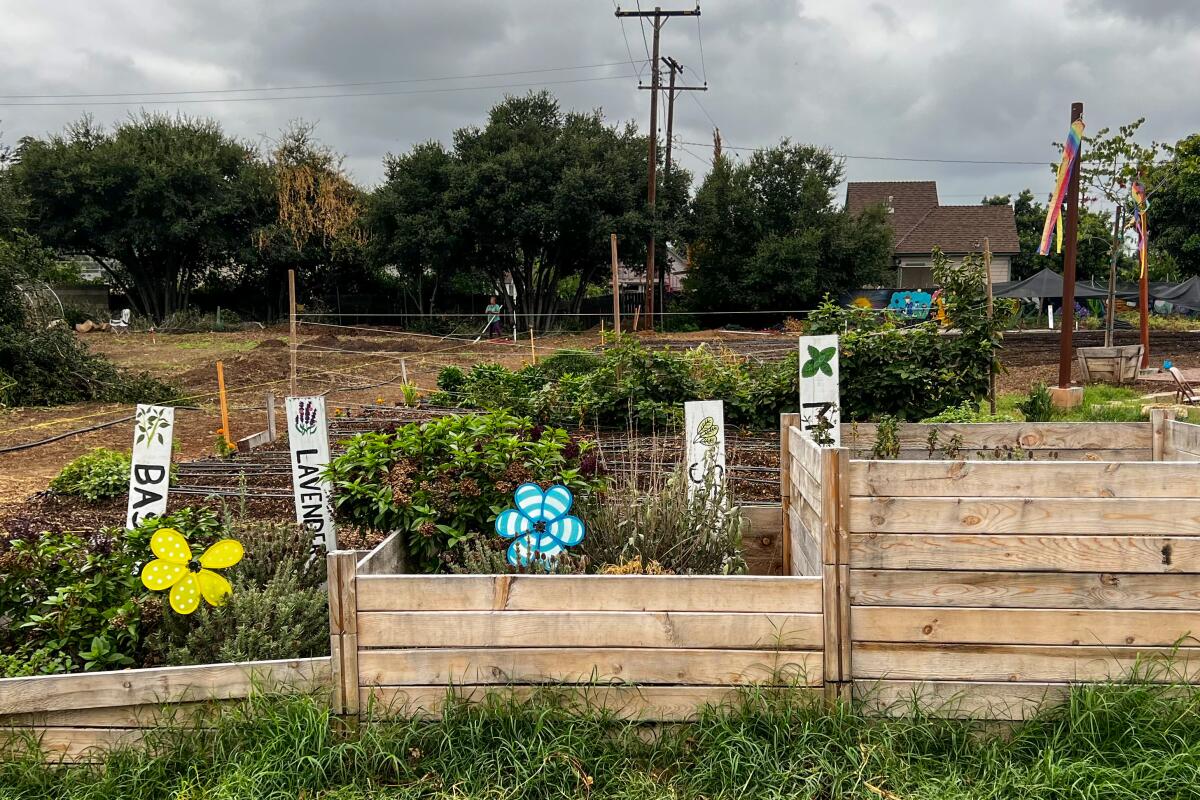
Lopez Urban Farm
Thirty-year Pomona resident Diego Torres enrolled his son, Diego Amor Torres, in the farm’s training program for kids ages 2 to 12. Their family soon became fixtures at the farm, often coming to volunteer and regularly taking home squash, kale, tomatoes, apples, peaches and grapes on open harvest Saturdays where you can pick whatever is available for harvest from 6 to 8 p.m. “It’s really just sort of like a safe haven for me and my son,” says Torres. “We’re going to go see Farmer Steve, we’ll go look for some bugs, get some sugar cane. When we get out there, he has his favorite spot, so literally, it’s a getaway.” The swing hanging from the oak trees, colorful seats and benches, a mud kitchen, and a newly added goat pen make the space very kid-friendly.
Torres also recalls getting shoes from the farm’s Bodega Comunitaria, which is a mutual aid market housed inside a shipping container and entirely based on donations, usually offering clothing, toiletries, hygiene products and books, and is open daily between 6 to 8 p.m. On Wednesday evenings, El Puestecito, a night market farm stand, is open from 5 to 7 p.m. in the fall (6 to 8 p.m. in the summer), and the Evergreen Equal Access Market is open every Tuesday from 8 to 10:30 a.m. for no-cost groceries and Pomona-grown produce, all operating on a pay-what-you-can basis. Free parking is available in the enclosed farm space for about 25 visitors and there are free parking spots along Mission Boulevard as well.
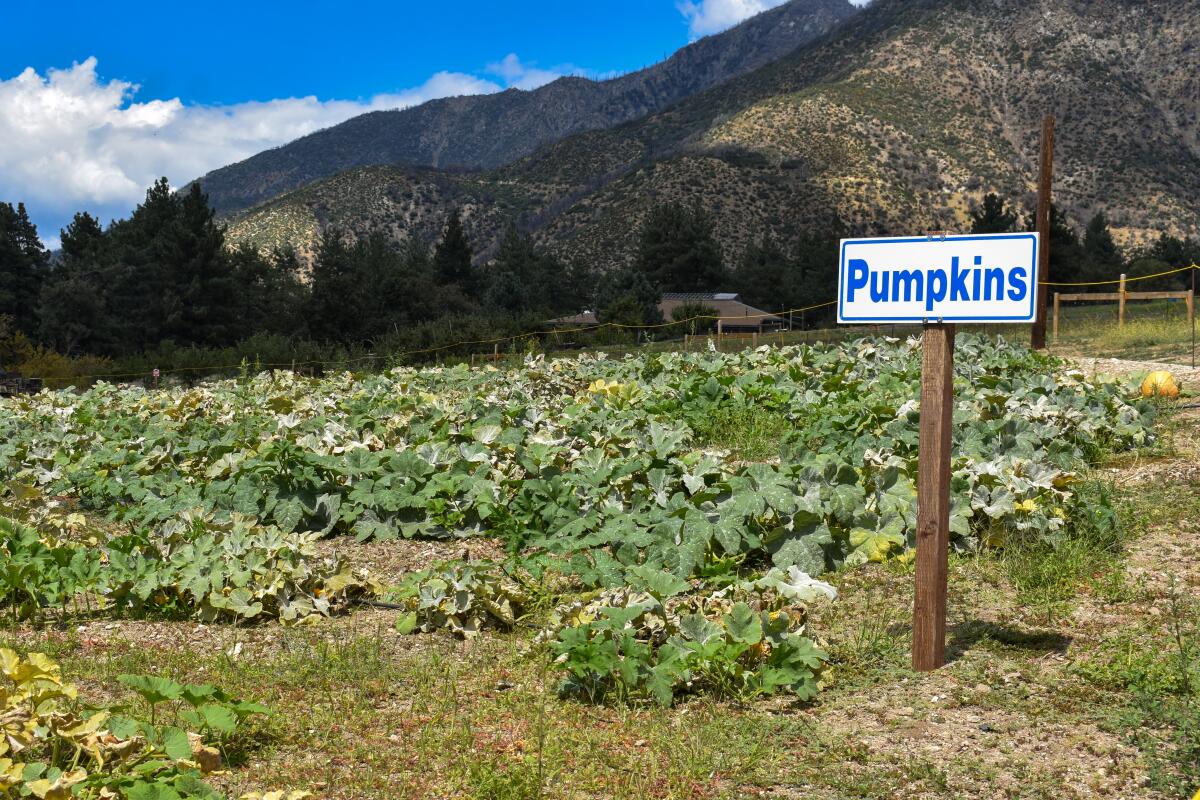
Riley’s at Los Rios Rancho
The south side of the property is where most of the activity is. There’s a farm store tent with items such as jams, butters, cider and trinkets; a farm kitchen specializing in barbecue, pies and ice cream; hard cider tasting; and a petting zoo for children. The lot directly in front of this area is paved and offers handicap accessible parking, though it tends to fill up quickly by early afternoon.
On the other side of Oak Glen Road, visitors will find more parking as well as more shops and stands in an area that’s a little less busy. A long dirt parking lot with lots of empty spaces is abutted on one side by hundreds of apple trees and on the other side by berries and vegetable plants.
During a recent visit, the south side of the property was offering u-pick gala apples while the north side had mutsu and jonagold varietals. Raspberries started at $4.50 for a half pint while the apples ranged from $3 to $6 per pound.
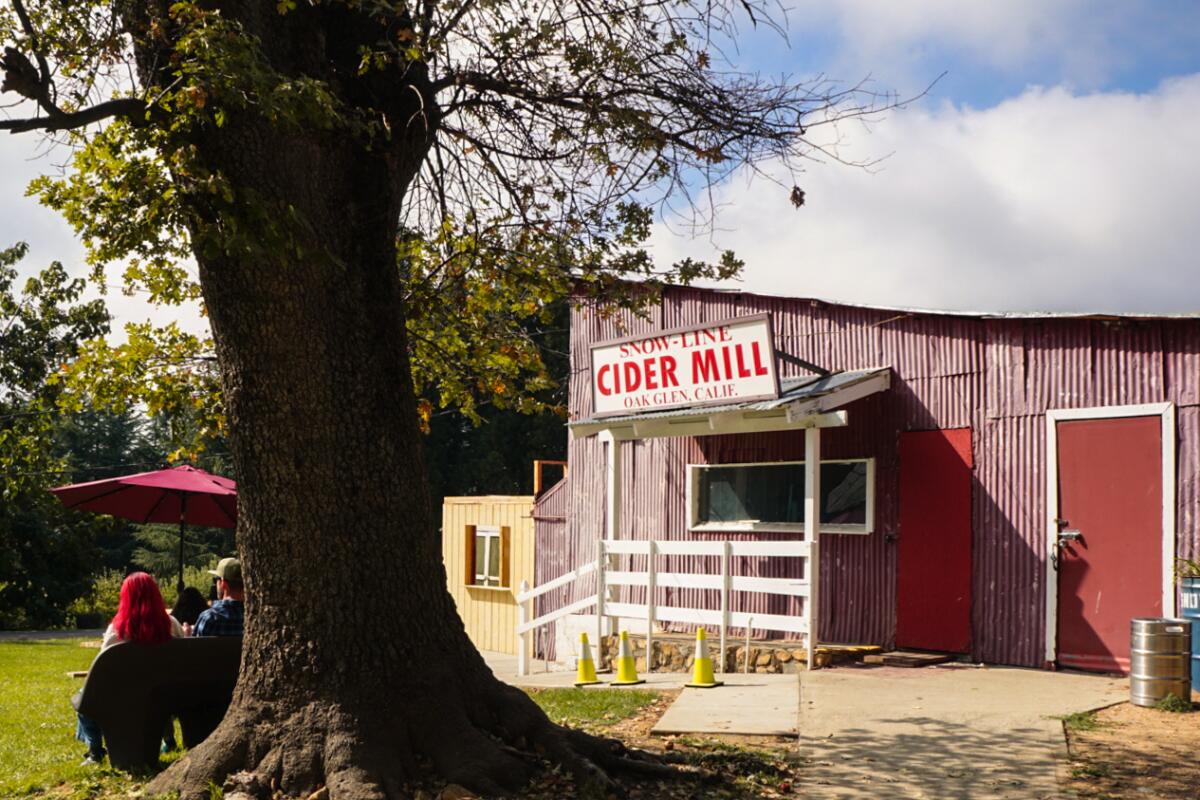
Snow-Line Orchard and Winery
The farm is open from 9 a.m. to 5 p.m. daily and features several activities beyond satiating a sweet tooth. Long rows of raspberry plants full of red, ripe fruit are ready to pick over in an area a stone’s throw from the gravel parking lot. The farm charges $10 for one pint of fruit or $18 for three.
Back inside the store are jams, butters, coffee mugs and magnets. In a back room of the store is a tasting room where hard apple ciders and wines line shelves. Guests can purchase a wine flight, which includes five 2-ounce pours, for $15.
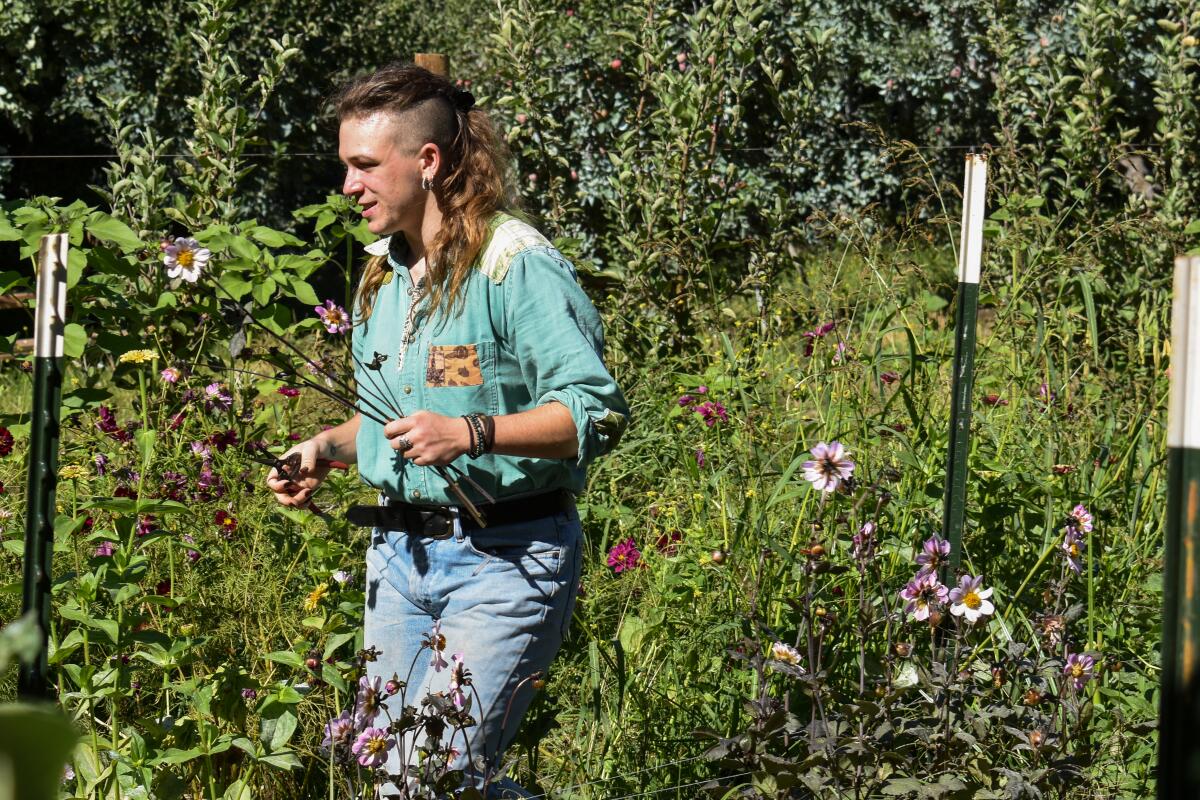
Stone Soup Farm and Heritage Orchard
The produce is used by the farm’s modest kitchen, which on a recent Saturday was serving up mimosas made from local cider and crostini plates. The flowers are used for farm events and floristry workshops.
Summer berry picking at the farm has concluded and apple picking will start on Oct. 7 and 8 and Oct. 14 and 15 during the farm’s Apple Fair event.
Admission for the Apple Fair is $22 and includes an orchard tour, cider pressing workshop, tomahawk toss and an apple tasting event that lets guests choose one of several apple-themed dishes from a menu. Apple picking is extra with a cost of $3.75 per pound of apples.
Reservations for the fair are required and can be made via the farm’s website.
As with neighboring Willowbrook, there’s no parking on site at Stone Soup Farm so be prepared to park nearby on Oak Glen Road and walk over.
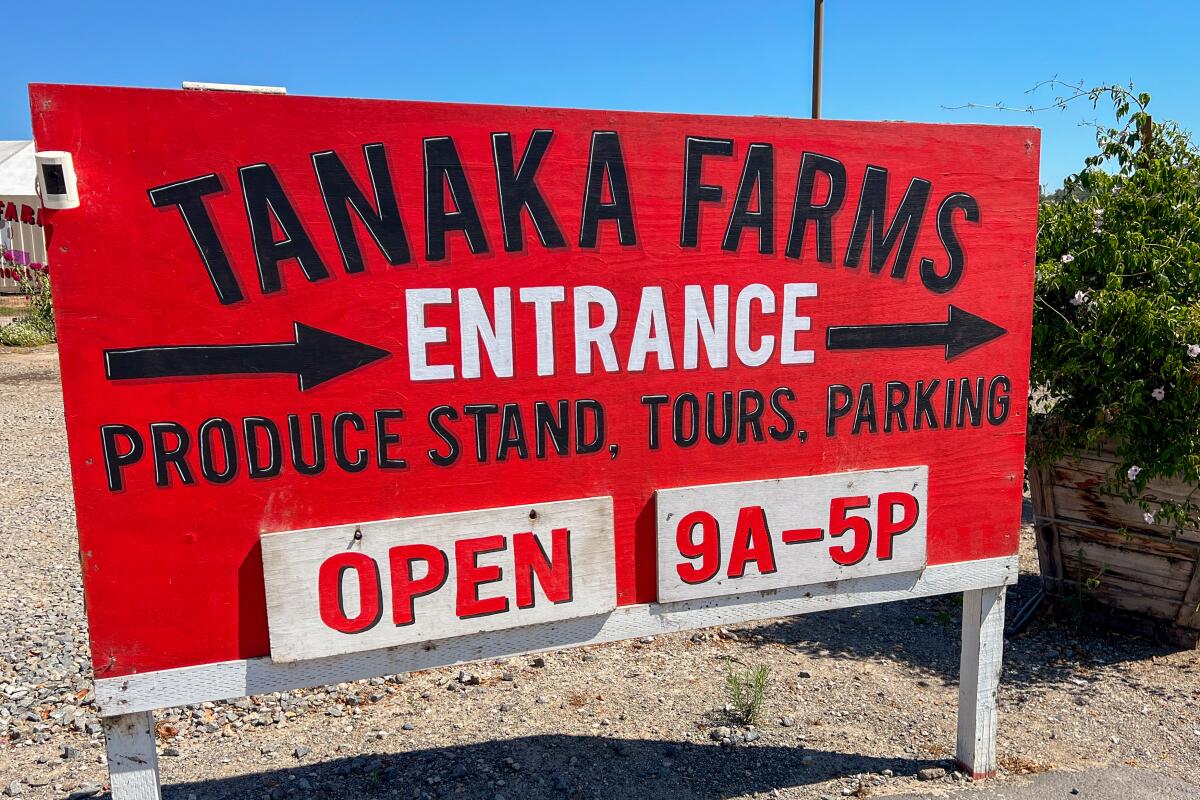
Tanaka Farms
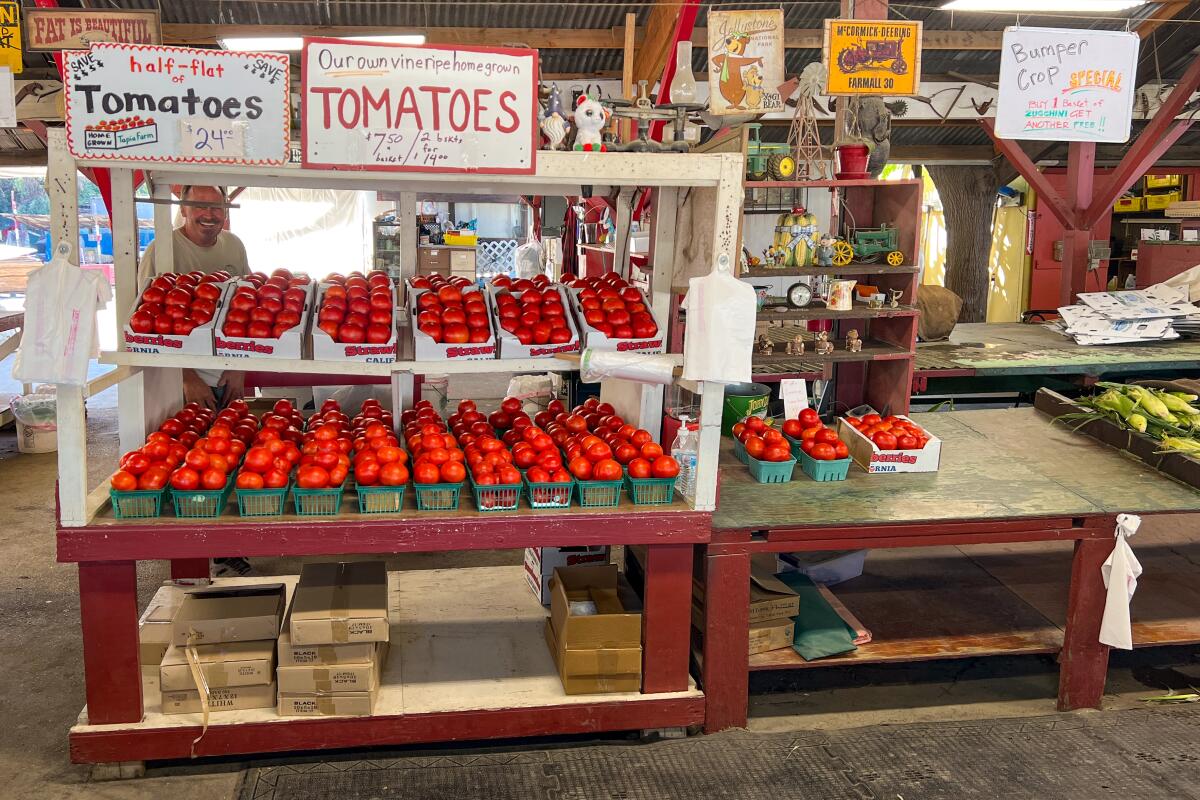
Tapia Brothers Farm
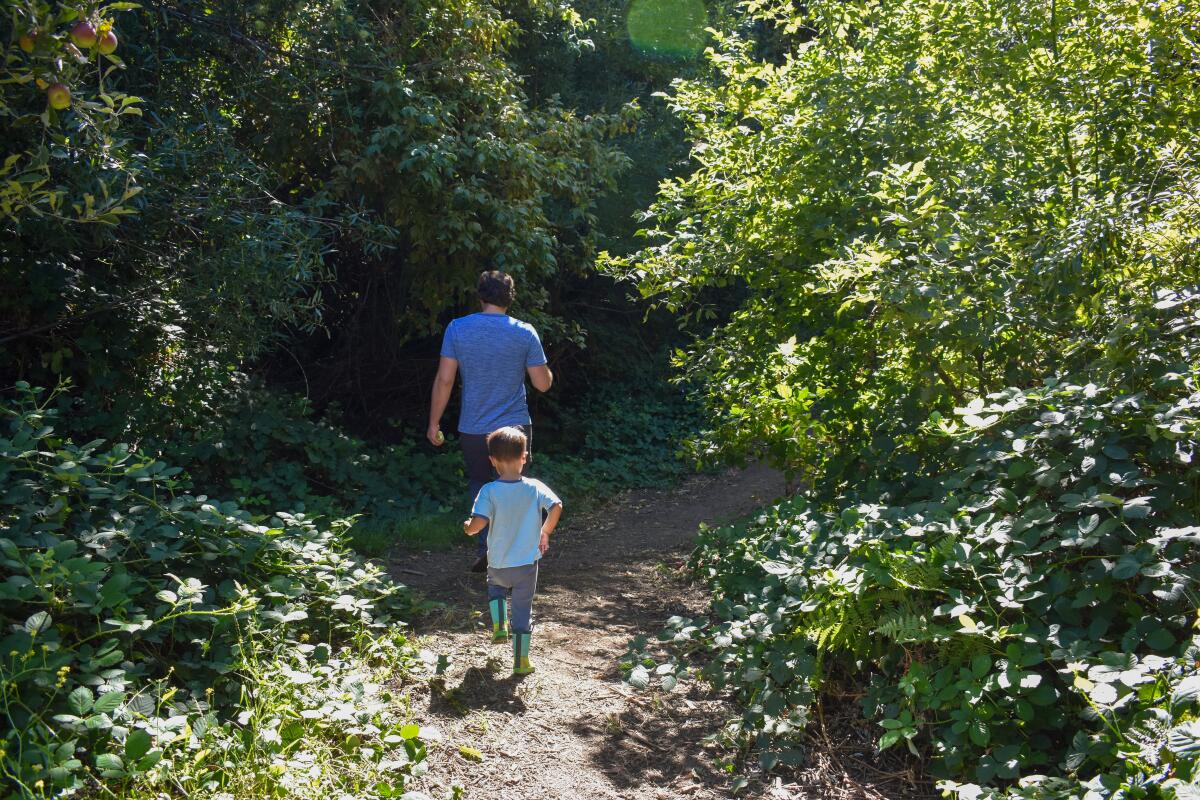
The 1887 Stone Pantry Orchard
The orchard is open from 10 a.m. to 5 p.m. on Saturdays and Sundays but is open to organizations and children’s groups such as the Boy Scouts of America and Girl Scouts by appointment during weekdays, according to owner Freeman House.
Parking is limited in the property’s dirt lots and fills up quickly. Additional parking is located offsite on either side of Oak Glen Road.
One of the star attractions at the orchard is u-press cider. Guests can crush their own apples and then strain the juice into a half gallon or gallon container while being supervised by an on-site employee. A half gallon is $20 and a gallon is $30. Apples and pears are $3 a pound, and berries are $5 a basket.
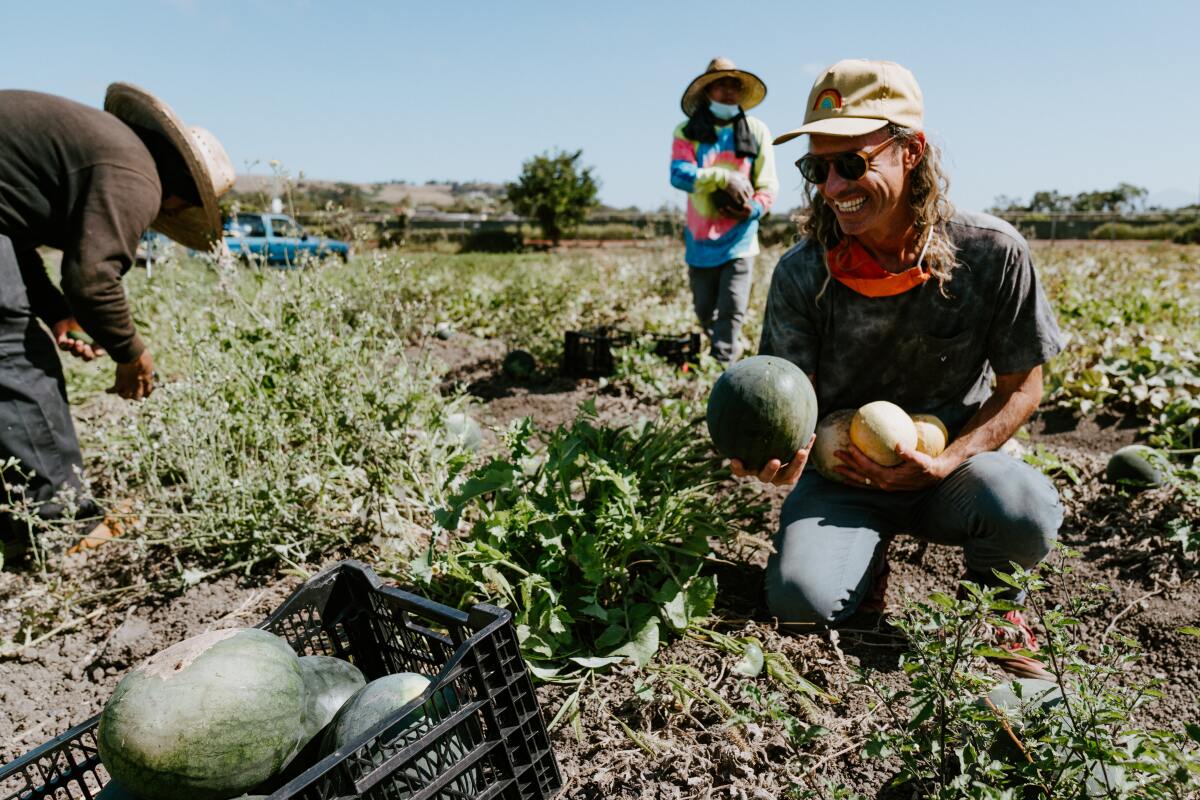
The Ecology Center
There’s always something going on at the farm — which was once the homestead of Pony Express rider Joel Congdon — from yoga and pizza-making to kids’ activities and berry picking.
The farm stand is open daily from 9 a.m. to 6 p.m. and offers luscious fruits and vegetables, artisan bread and tortillas, flowers, books and gifts.
Walking around the farm is fun, and the recently opened Campesino Café provides more time to linger over food grown on the farm and the fermentation lab.
If you want to learn more about the Ecology Center, check out one of the free educational tours on the first Saturday of the month.
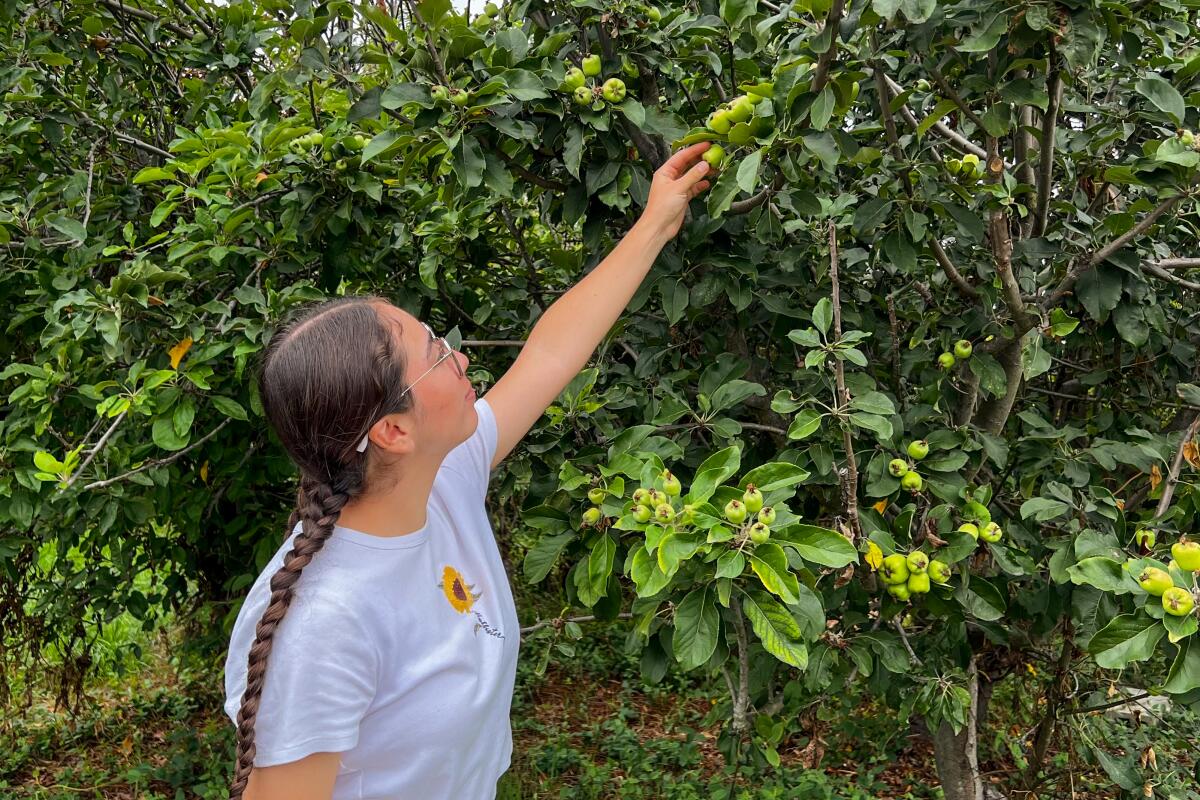
The Growing Experience
Jeff Rowe, one of the master gardeners leading various workshops and programming, is especially proud of their regular crop swaps. “People bring what they grow in their backyard. They’re saying, ‘What’s that and how do you grow it?’ They’re connecting, they’ll say, ‘How do you cook it?’ They make those kinds of personal connections. So in my little dream, you know, we’ve got like a thousand backyard farms in Long Beach alone.”
Recently, Angela Anguiano, one of the farm interns, suggested taking farm stand baskets over to a nearby senior center. The baskets include freshly harvested prickly pears, tomatoes, okras, limes, fennel, mint, squash, collard greens, carrots and figs. Parking is free on both sides of the street outside the farm and bringing friends and family is encouraged.
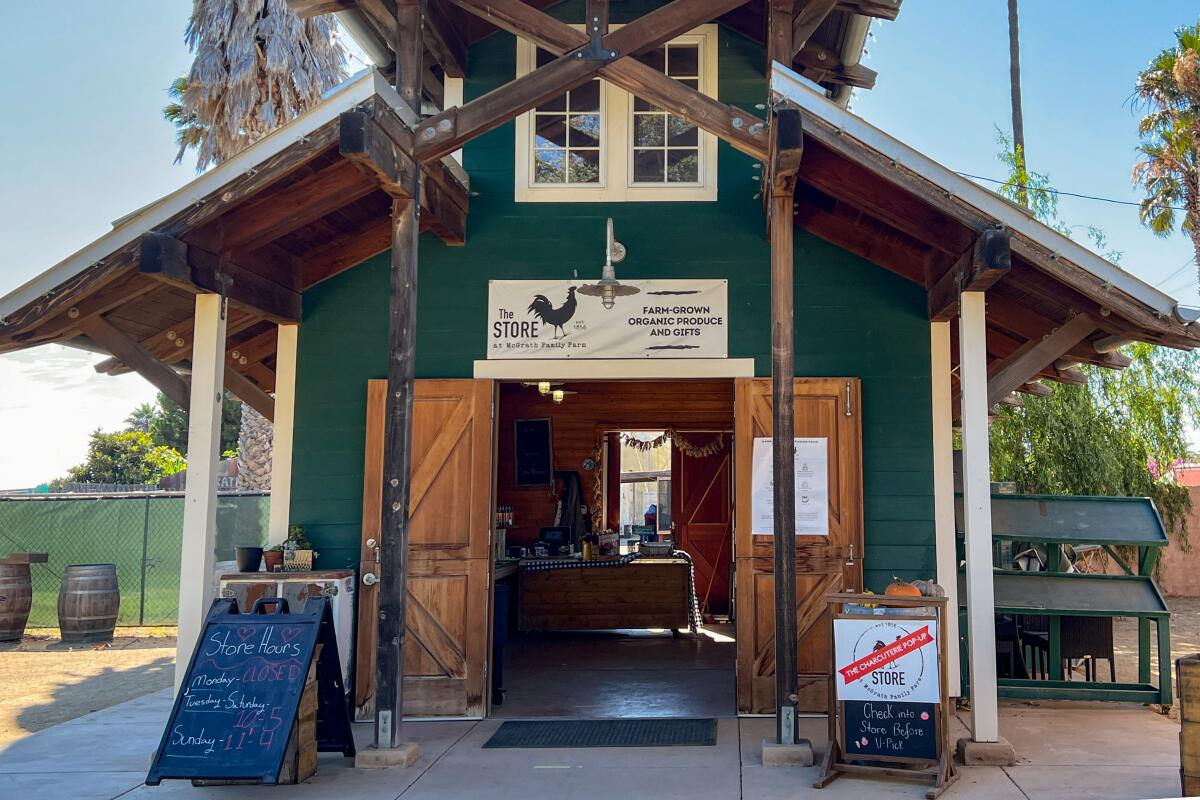
The Store at McGrath Family Farm in Camarillo
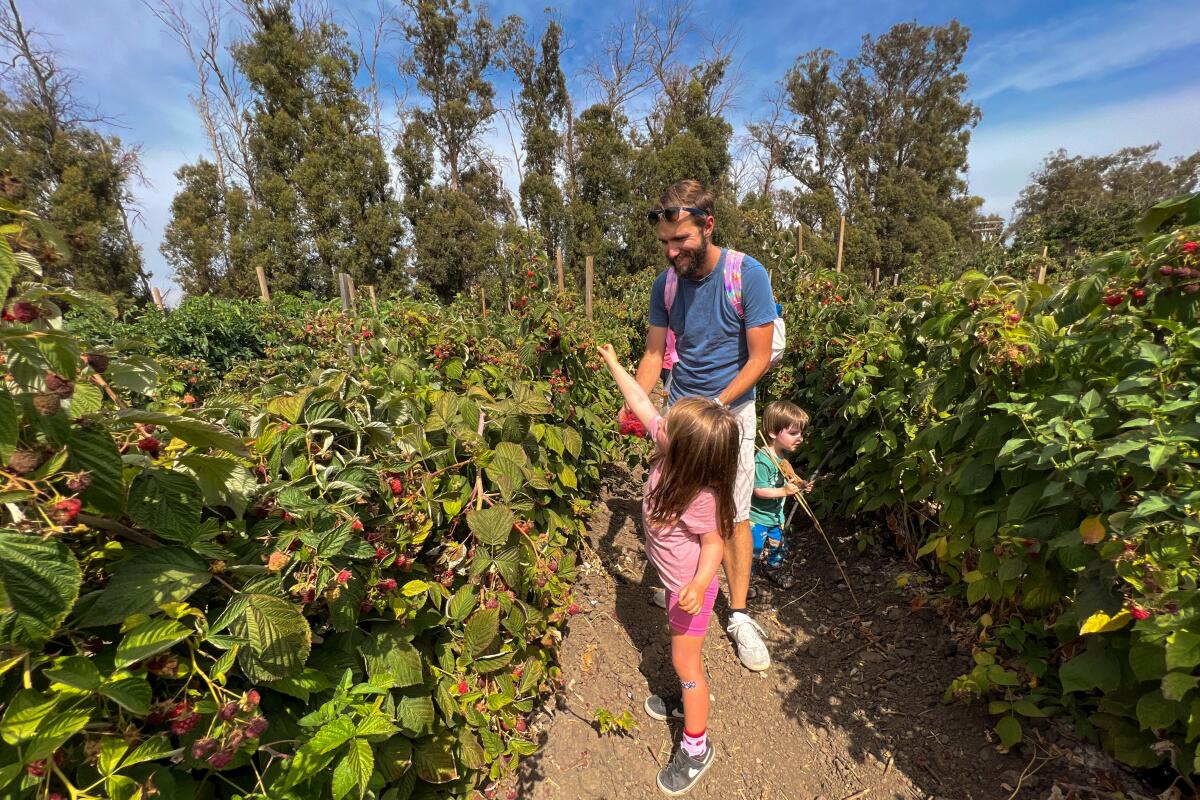
Underwood Family Farms in Moorpark
Admission to pick and play in the fun area is $7 per person on weekdays, $10 on weekends and holidays; tickets for goat petting, horse-drawn wagon rides and other rides start at $1 a ticket, with discounts for purchasing more. Most rides require five or fewer tickets. There is lots of free parking. If all you want is produce, visit the Somis location because Moorpark can easily fill an afternoon.
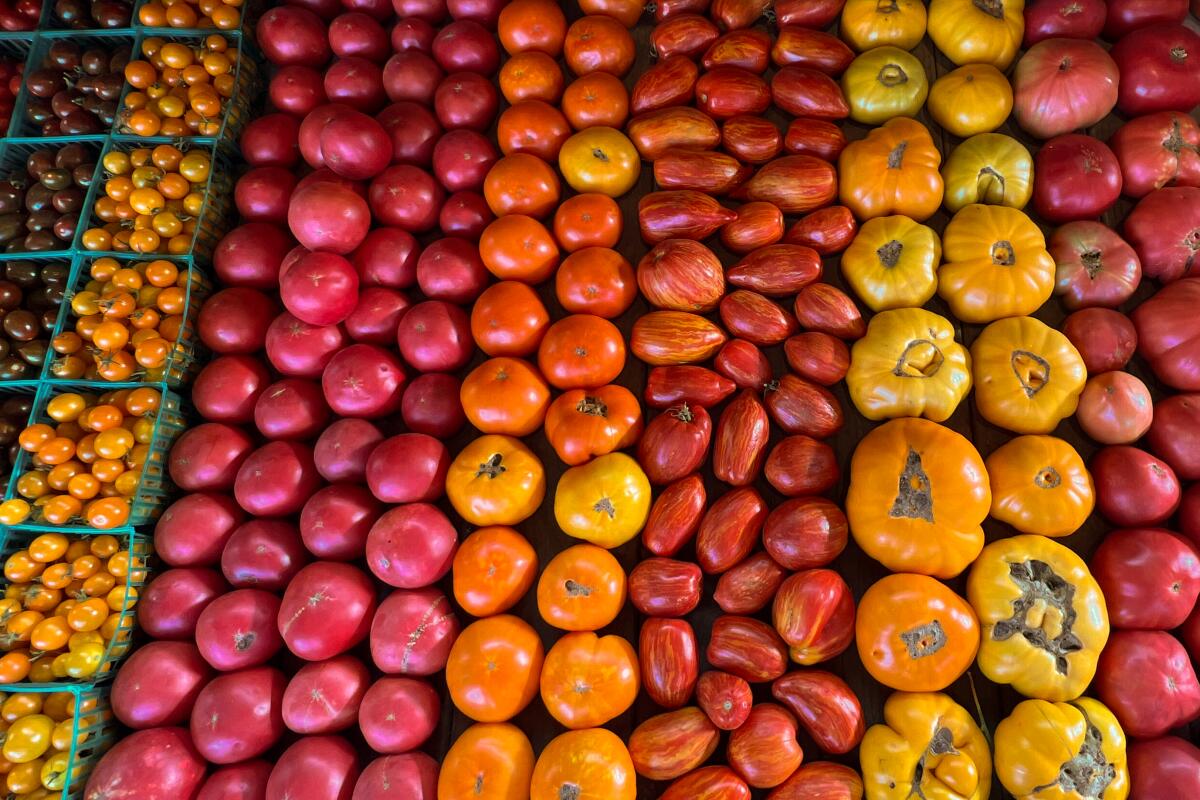
Underwood Family Farms in Somis
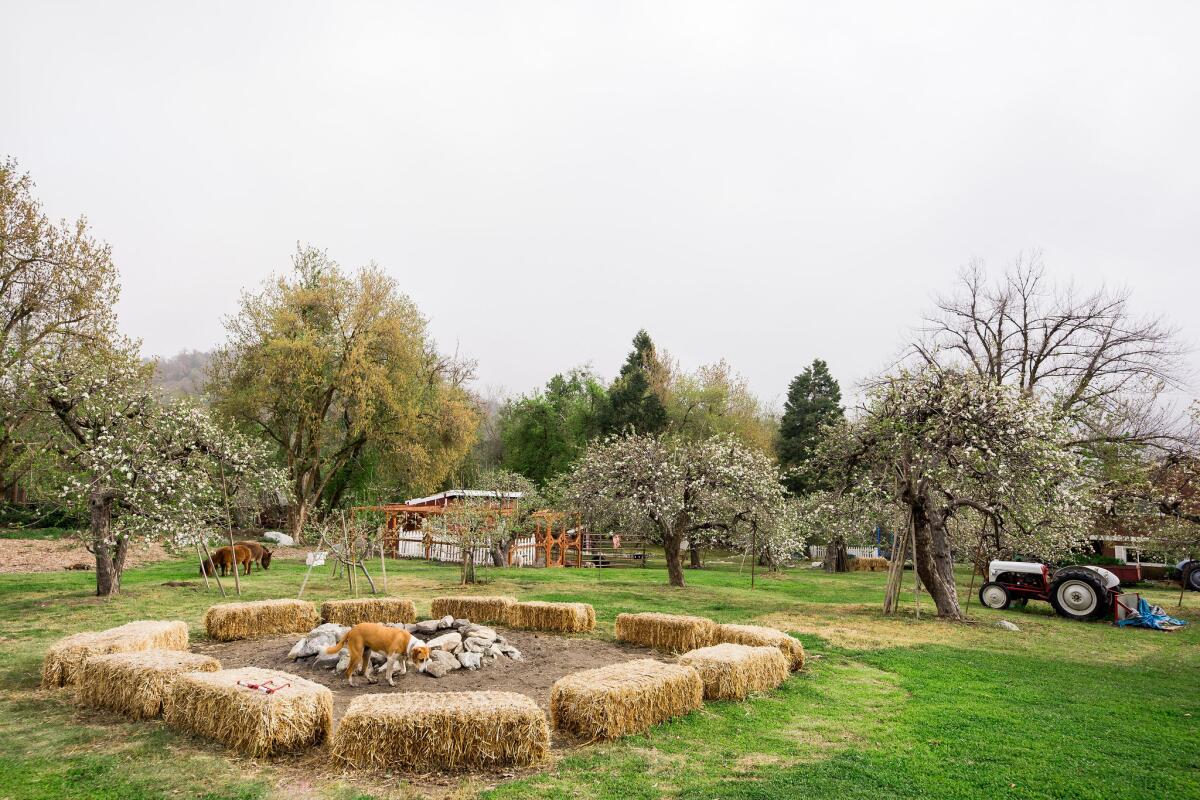
Willowbrook Apple Farm
This year the farm is open between noon and 6 p.m. Saturdays and Sundays and will require reservations for $10 plus a $2.51 fee by visiting the farm website. There is no parking, but guests can park along Oak Glen Road and walk over.
Willowbrook just wrapped up berry picking, and its apple season will tentatively begin Sept. 30. That’s when the farm’s owners expect their Stayman Winesap apple trees, planted in 1910, to have apples ready to pick. U-pick apples will be $35 a bag and u-press cider is $25 for a half gallon.
The farm will also sell s’mores and caramel apples in quantities of two for $12. During the 4 to 6 p.m. block, it will feature an organic wine tasting paired with sweets for $65. Guests can sign up for the tasting when they make their reservation.
Sign up for The Wild
We’ll help you find the best places to hike, bike and run, as well as the perfect silent spots for meditation and yoga.
You may occasionally receive promotional content from the Los Angeles Times.
